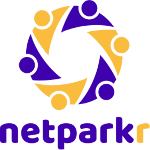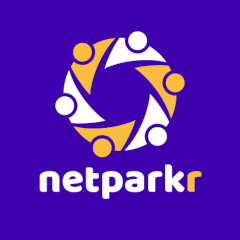Workbooks is a cloud-based SaaS CRM application that helps growing companies manage operations and customer engagement. It offers cost-effective solutions and lower pricing than other CRM providers, enabling organizations to expand in a reasonable and controllable way. The CEO, John Cheney, started Workbooks to relieve organizations of the strain of managing disparate solutions while enabling them to enhance their operations.
Workbooks is a cloud-based SaaS CRM application that aids growing companies in better managing their operations and customer engagement. They provide SMBs cost-effective solutions. They often offer a lower pricing point than other CRM providers, like Salesforce or Microsoft, enabling organizations to expand in a reasonable and controllable way.
The CEO, John Cheney, shares his tale with Business Matters.
Workbooks: Why did you start them? Did you want to change things up or was there a need you could address in the market?
Prior to this, I started a cloud-based email security business. Like many SMBs, we made investments in numerous IT platforms as we evolved. For example, we utilized Salesforce as our sales platform but another platform for marketing automation, finance, and customer support, among other things. It adds unnecessary complexity and expense to operate a firm using several platforms. I thus recognized a chance to create a CRM and business applications platform for medium-sized companies like ours.
The goal was to relieve organizations of the strain of managing several disparate solutions while enabling them to enhance their operations. I wanted Workbooks to include capabilities like order processing and customer assistance that could link the company’s consumer-facing side with accounting systems in addition to conventional CRM.
The goal was to provide a business application platform for growing companies that needed more capability than simple, fragmented accounting, marketing, and sales tools but couldn’t necessarily afford enterprise solutions.
Why are Workbooks special?
Workbooks provides a Shared Success approach to new projects in addition to the CRM solution, which is a differentiator. For many firms, selecting the right CRM solely based on technology might be a fast road to failure. Companies should instead start by determining the intended business results before setting functional goals.
Our Shared Success methodology helps organizations define and prioritize their business results, understand their CRM needs, and set specific implementation goals. We make three investments to ensure the success of CRM activities for our clients:
We help customers determine what they need from CRM software to accomplish their company goals through a co-funded workshop.
To provide customers a personalized CRM at a standard price, we co-fund deployment.
We provide a co-funded customer success program so that customers may use a CRM that scales with their needs to future-proof their company operations.
What is the main problem you resolve for your customers?
Our CRM software helps SMBs boost revenue, improve customer experience, save operational expenses, and improve decision-making by integrating the entire organization. Our main CRM services for small and medium-sized businesses also cover marketing automation, event management, order management and fulfillment, invoicing, and supplier management in addition to sales, marketing, and customer support. In order to create a CRM and workflow customized to their unique difficulties, we consult with businesses. As a result, we are pleased to announce that G2 has placed us top in customer satisfaction for the previous six years.
What are the key values of the company?
Our clients’ success, which starts with our customers as people, is what determines our success. Our overriding approach is to focus on the people we work with and consider how we might help them perform better. Business success will follow.
Do your values guide how you make decisions?
It’s critical that the people we’re dealing with grasp CRM setup while helping a customer with it. We are prepared to spend the effort required to make sure that customers are using the tools successfully because we are confident that if they are, they will continue to invest in the Workbooks platform.
Is team culture important to your business?
I think any company has to have a strong team culture. At Workbooks HQ, our five business values are posted on the wall. The most important one is “customer first,” which refers to how we as a company make sure that we give our clients the outcomes they anticipate. The last traits are ‘dedicated,’ ‘creative,’ ‘identifies possibilities and challenges,’ and ‘competitive’ — we like to win! But the success of all of these firm ideals depends on our cooperation.
What do you do to show your team you care if team culture is crucial to the success of your company?
Our sixth unofficial business value is cake. Whether it be the completion of a sizable transaction or a birthday, it is imperative to commemorate significant victories as a group. Additionally, we host quarterly “town hall” events when I provide an organization-wide business report and we honor significant individuals for their achievements. They are the protectors of our Workbooks.
Do you think your messaging is direct and crystal obvious to your audience?
Being real and speaking to our prospects openly and plainly is not always easy. All of our clients, from industrial corporations to professional services organizations, require unambiguous communication. We’re working on it, but there will still be some variations in needs depending on the business. Understanding them is the most important thing.
What position do you take on interest rates and inflation? Will you pass these expenses forward to your consumers or, in these trying circumstances, will you take a blow to your margins and reward their loyalty?
Many of our clients are already covered since they have multi-year contracts with us. Any adjustments to our public list price made throughout the term of the contract have no bearing on the price of the goods.
The costs for our customers’ Workbooks licenses have not changed because more than 75% of them are bound by multi-year contracts. On renewal, however, expenses are always reevaluated, and prices could need to be raised to reflect inflation.
How often do you assess the information you gather and address your KPIs?
I go over a number of dashboards each day that show data from various parts of the company. We use the data to examine and assess our KPI-based performance on a constant basis. Following essential financial parameters like billings and cash flow, we assess top-line revenue, sales success, customer happiness, customer health, and customer retention rates.
The performance of our budget is assessed using these data. How do we fare in comparison to where we had expected to be? Exist any customer-related problems that need to be fixed? We aim to uncover potential customer concerns as early as possible and identify their causes, therefore this is a very crucial piece of what we do with the data every day.
Is technology having a big impact on how your business is run on a daily basis?
We constantly and gradually upgrade our technological infrastructure, and, like many companies, we now utilize video conferencing technologies a lot more often than we did in the past. However, technology has generally been a crucial component of our business’s day-to-day operations.
What do you think about your rivals?
I respect the opposition. I think they actually benefit us. We can distinguish our services from them since they helped create the market in which we operate, including our key rivals Salesforce.
You may be in a lonely and stressful position as the company’s main decision-maker. What do you do to relax, refuel, and improve your focus?
I like making wine and sipping wine. Sometimes at the same moment. Actually, it’s best to do both at once.
Do you make longer-term goals or do you adhere to the 12-week work method?
To put it plainly, I support the 12-week work theory. But at Workbooks, this is just one of three things we do. In summary, we have a three-year business plan that is more strategic, a 12-month financial plan that is much more extensive and contains budgets and key performance indicators, and a three-month plan that concentrates on our more immediate goals and what we are trying to accomplish.
What is the environmental policy of Workbooks?
Everywhere we can, we are lowering our carbon impact. For instance, we take part in the bike to work program, and we just started an electric car program. At our workplaces, electric car charging stations are gradually being set up. Additionally, we are looking into ways to run our company more sustainably. For instance, we are working with our vendors to lower the amount of energy that our gear uses.
What three objectives do you want to achieve in the upcoming year?
Moving ahead, international expansion will be the main priority. In order to support our growth in North America, where we just received our largest contract to date, we built an office in Connecticut in 2018. We anticipate expanding our American staff by five throughout the course of the ensuing year.
We plan to create a third location in Europe and launch a new tool that will assist our clients in managing initiatives more effectively.
For further information
You can check Workbooks or contact me on LinkedIn
We gather unique business case studies from all over the internet, to inspire you with a wide range of business ideas. This case study was supervised by our team and it definitely caught our interest. You can find other inspiring business stories here.







